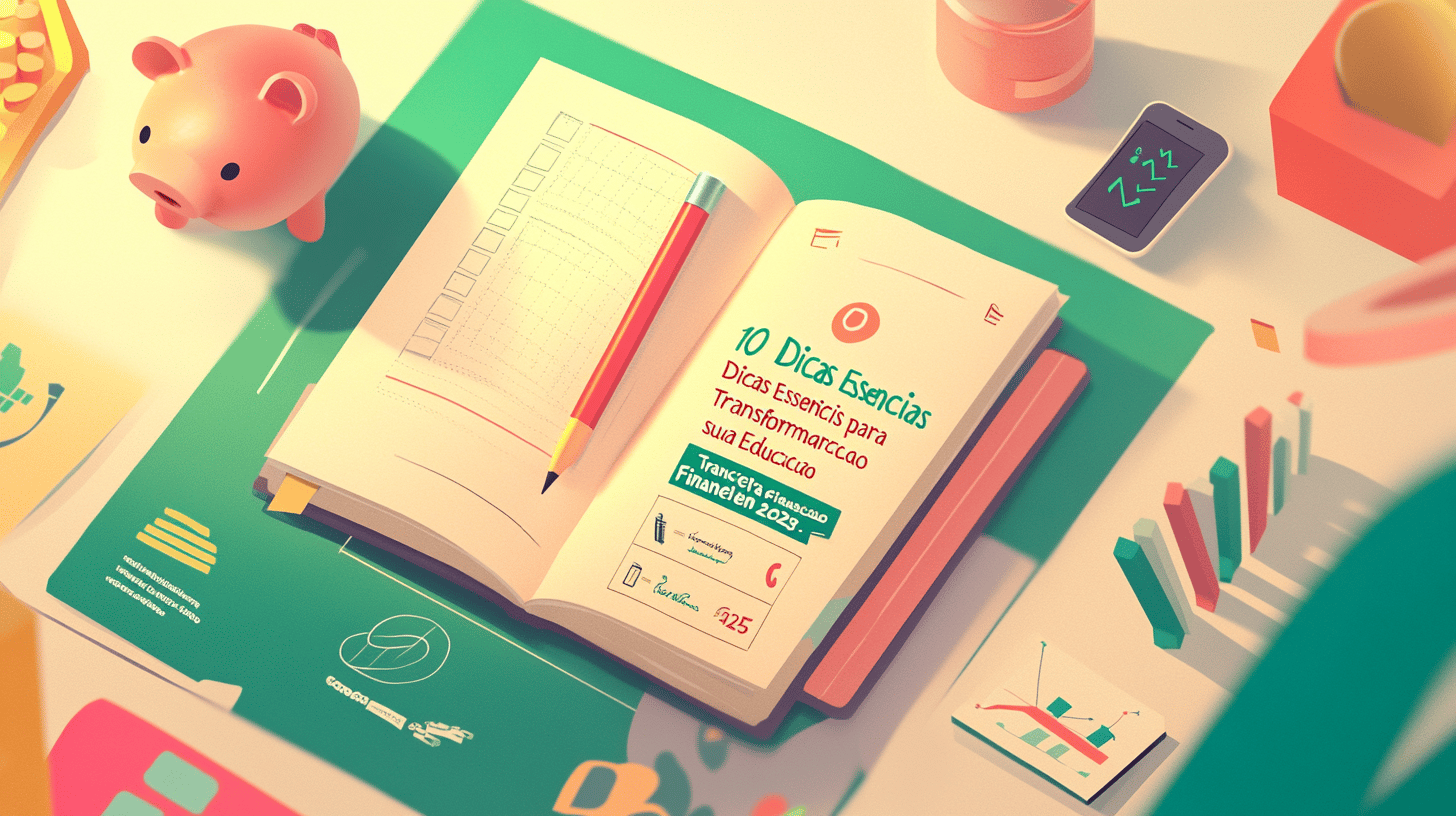Financial literacy is an essential skill in today’s world, enabling individuals of all ages and financial situations to make more informed and informed decisions. With rising interest rates, inflation, and the cost of living, investing in your financial literacy has never been more important. In this article, we’ll explore 10 essential tips that can transform your financial literacy in 2025, helping you build a more stable and secure future.
1. Understand the importance of the family budget
A solid budget is the cornerstone of financial literacy. It allows you to have a clear view of your income and expenses, helping you identify spending patterns that can be adjusted. Start developing a monthly budget that details all of your sources of income and categorizes your expenses, such as food, transportation, housing, and entertainment. By tracking your spending, you can find areas to save and invest more in the future.
2. Learn about investing
Investing is a fundamental way to make your money work for you. In 2025, consider learning about different types of investments, such as stocks, bonds, mutual funds, and real estate. Study the different risks associated with each type of investment and how each can fit into your financial strategy. Use investment simulators and online platforms to gain experience without risking your capital.
3. Build an emergency fund
An emergency fund is a critical component of any financial plan. It serves as a safety net in case of unexpected expenses, such as medical issues, car repairs, or job loss. The standard recommendation is to have three to six months of expenses saved. In 2025, start setting aside a percentage of your income toward this fund until you reach it, using accounts that offer liquidity and security.
4. Improve your education to increase your income
Investing in your education and skills can lead to better job opportunities and increased income. Consider taking courses, workshops, and training in areas that interest you or that you feel you need to develop. Also, explore online platforms that offer affordable or free courses on personal finance, investing, and professional skills. The more qualified you are, the better your chances of earning a higher salary and financial stability.
5. Understand debt and how to manage it
Understanding the nature of debt is crucial to effective financial education. There is good debt, such as debt that can generate returns on investments, and bad debt, which eats away at your income. Learn to differentiate between these debts and how to manage them properly. Develop a plan to pay off large debts, prioritizing those with the highest interest rates first. Consider options such as debt consolidation if it is beneficial to your situation.
6. Explore the importance of credit
A good credit history is essential to getting higher loan limits, financing, and better interest rates. Start monitoring your credit with free reports and identify ways to improve it, such as paying bills on time and avoiding using your entire credit limit. In 2025, consider using credit cards responsibly and discuss it with a credit professional if necessary.
7. Practice conscious saving
In times of excessive consumption, saving money may seem like a complicated task, but it is possible to implement conscious savings habits into your daily life. Reduce impulsive spending by creating a shopping list and avoid going out for unnecessary purchases. Also consider cost-effective alternatives, such as cooking at home instead of eating out. Write down how much you save and visualize the long-term impact on your finances. This practice can lead to a greater understanding of your spending habits.
8. Use financial apps
Technology is on your side when it comes to financial literacy. In 2025, use financial apps that help you manage your money, track spending, and even invest. These apps can make it easier to create budgets by notifying you of overspending and suggesting adjustments. Explore options that align with your needs and offer intuitive and helpful financial management features.
9. Plan your retirement early
The sooner you start planning for retirement, the better off you’ll be financially in the future. Explore retirement plan options, such as private pensions or tax-advantaged retirement accounts. Use calculators to see how small monthly contributions can add up over time. Set a retirement savings target by 2025 and adjust it as your income and lifestyle change.
10. Share and discuss finances with others
Last but not least, try to build a support network for financial issues. Share your experiences, discuss challenges, and learn from others. Join online groups or forums where you can exchange ideas about savings, investments, and financial strategies. Collaborative learning is a great way to expand your horizons and find new solutions for your financial life.
Conclusion
Financial education is an ongoing process that leads us to a deeper understanding and self-efficacy in economic matters. In 2025, apply these 10 tips and see how small changes can make a significant impact on your financial life. Remember that every step you take in the right direction is a step towards a more stable and healthy future. Don’t hesitate to comment below about your experiences and share your successes or challenges in your financial education journey. Together, we can build a prosperous future for everyone!



